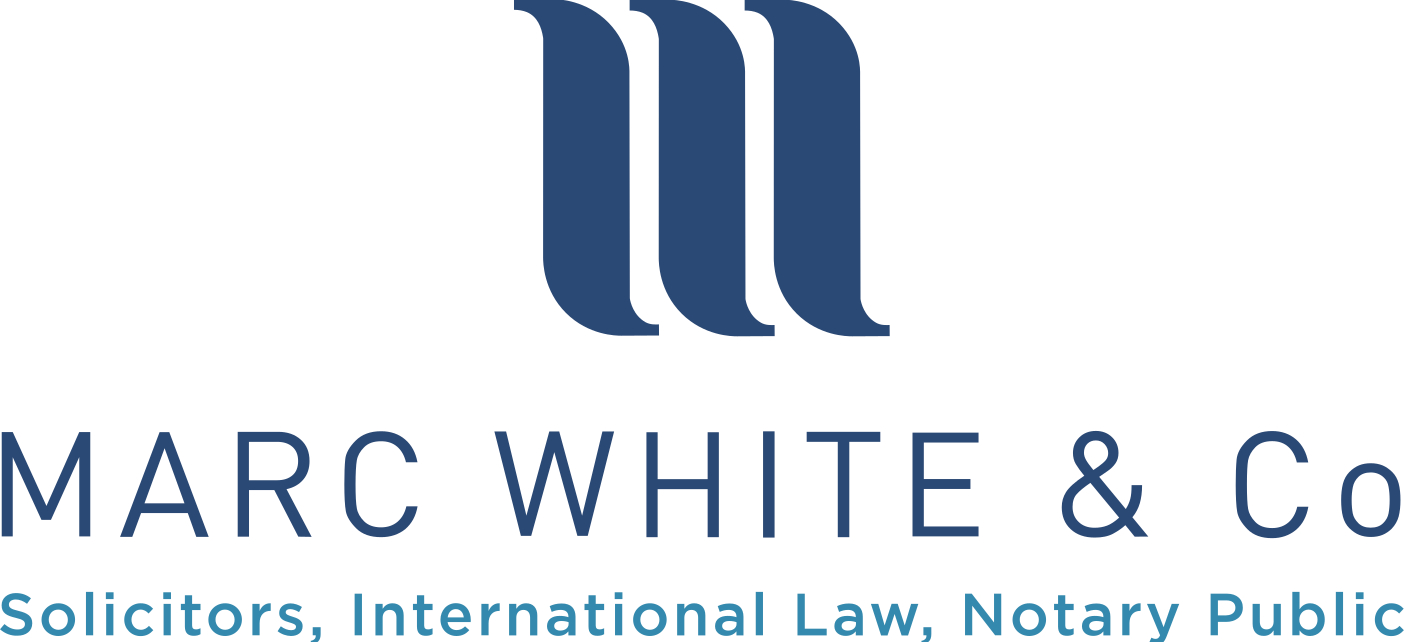When it comes to estate planning in France, understanding French law can be important, as the law is strict about how a will must be draughted and executed. Unlike in England and Wales, under French law only four specific types of wills are recognised as legally valid (though this does not affect the validity of a foreign will in France under the terms of the 1961 Hague Convention, which we discuss in more detail here). Understanding each type is essential to ensure your wishes are respected and your heirs are protected (should you be advised that the best option for you is to have a French will). Here is a breakdown of the four valid forms of wills in France:
-
Testament Olographe (Holographic, or handwritten Will)
The holographic will remains the most widely used form of will in France. Its appeal lies in its simplicity. It is cheap (virtually free), requires no witnesses or notarial oversight, and can be made privately at any time. Under Article 970 of the French Civil Code, a holographic will must meet three strict criteria to be valid:
- it must be entirely written by the testator’s own hand;
- it must be dated ; and
- it must be signed by the testator.
Failure to meet any one of these elements can result in the will being declared void. One of the key differences here with an English will is the absence of witnesses. This is because in France, the concept of testamentary freedom is reliant on the ability of the testator to be able to express their final wishes as they please, when they please, and in privacy. While there are benefits to this approach, the level of informality also opens the door to disputes and legal grey areas, and French case law provides many examples of unusual cases over the years. While this type of will does offer flexibility, it will not be available to everyone, as it requires the testator to be able to read and write, which is not particularly inclusive for those suffering from health conditions or disabilities or with limited literacy.
A recent case raised the question as to whether a digital will could work. The deceased had, moments before his death, sent an SMS describing his final wishes and how he wished for the distribution of his assets to be executed. The Tribunal de Grande Instance de Metz (first instance court) ruled that this would not be applicable and that the rule would remain as it always had been; a holographic will must be handwritten.
The courts have, however, have shown some flexibility over the years. A will was found written on the back of a bank statement. It was handwritten and signed by the testator, but it was not dated, which is one of the three criteria set out in the Civil Code. The bank statement it was written on, however, was itself dated and addressed to an address where the testator moved out from shortly afterwards. The courts ruled that the will was valid, as there were sufficient external elements which provided for a precise enough time frame for the courts to consider the will valid.
Another case we can consider is one where, whilst on holiday, the testator sent a postcard describing to his daughter how he wished for his assets to be distributed. It was signed, dated, and handwritten, but the question was raised as to the intent, due to the form of the writing being a postcard and not specifying this was a will. It was finally ruled that final wishes written out on a postcard would constitute a valid will.
Finally, a recent 2021 case found a holographic will invalid as it had been written in a language not spoken by the testator, despite the evidence pointing to the testator having been provided with a translation of the contents of the will before writing it out. Despite the language of the will not being a strict criterion set out in the French Civil Code, the court ruled that if the testator could not read his own will, it could not constitute a valid will.
As a result of this case, best practice when advising foreign clients on draughting French holographic wills moved on from preparing those wills in French (which avoided translation costs and made it easier to rely on pure French legal concepts) to preparing them in the clients’ native language.
-
Testament Authentique (Authentic Will)
The authentic will offers the highest level of legal security in France, as in general it will be accompanied with legal advice due to the involvement of a notaire, with the execution formalities making it very difficult to contest. It is dictated by the testator and draughted in the presence of two notaires or one notaire and two witnesses. The process is as follows:
- the testator dictates their wishes verbally;
- the notaire writes it down and reads it back to confirm; and
- it is signed by all parties involved.
This form is ideal for people who want professional guidance to avoid mistakes or for those who are illiterate or visually impaired, who suffer from other health conditions, or who have disabilities that prevent them from making a holographic will. This type of will tends to be more expensive, and unless the notaire is familiar with international/cross-border law, it is not necessarily the most appropriate for individuals with assets in various countries, at least not without a cooperative cross-border approach. It also requires physical presence at the notaire’s office, which can mean delays for testators who do not permanently reside in France or prevent this solution altogether if the testator resides outside of France and for health reasons cannot travel. In such cases, a foreign will valid under the 1961 Hague Convention is likely to be a better option.
Finally, if the testator does not speak French and if the notaire does not speak the testator’s language, a sworn interpreter will need to attend in person and sign the will, making an authentic will particularly burdensome to organise for foreign nationals.
-
Testament Mystique (Mystic Will)
The mystic will is a rarer, more secretive form of will. It allows the testator to keep the contents of the will confidential, even from the registering notary.
For a mystic will, the testator drafts and executes their will, which they then seal in an envelope. In front of a notaire and two witnesses, the testator declares that the envelope contains their will. The notaire then draws up a certificate of sealing, which is signed by all parties.
While this method keeps the Will’s content private, it carries some risk. If the document inside doesn’t meet legal formalities (e.g., not signed or not dated), it could be declared invalid.
This type of will would mainly be used when there are particular concerns about the contents of the will being revealed prior to the death of the testator. For example, if the testator is a high-profile individual and the will contains a legacy to a child that the public or their family were not aware of, a high degree of privacy would be sought after.
-
Testament International (International Will – Washington Convention)
The international will is designed for individuals with assets in multiple countries or foreign nationals living in France. It is recognised under the Washington Convention of 1973, which France ratified.
To be valid, the will must be made in writing, typed or handwritten (not necessarily by the testator); it must be signed in the presence of a notaire and two witnesses (similarly to the testament authentique). It must be accompanied by a declaration by the testator stating it is their will and must be registered with the French Central Will Registry. It is also accompanied by a Washington Convention certificate, in France issued by the registering notaire.
An international will is automatically valid in all countries party to the convention, and as such, this format offers strong protection across borders and simplifies estate matters involving multiple legal systems, but only where the countries involved are parties to the convention.
However, due to the existence of other international conventions more widely ratified, such as the 1961 Hague Convention, and the fact that very few countries actually ratified the Washington Convention, it is of limited practical use, with easier options to implement being available instead.
-
Registration of a French Will – What is the FCDDV ?
The FCDDV (Fichier Central des Dispositions de Dernières Volontés) is a central register in France that records the existence and location of a person’s will, helping to ensure it is found and followed after their death. Its main purpose is to avoid situations where a will is lost, ignored, or unknown to the heirs or notaries/solicitors involved. Registration in the FCDDV is not compulsory, and a will remains legally valid even if it is not listed in the register.
Only a French notaire can register a will with the FCDDV, and when they do, they are the ones who must hold on to the original copy of the will (this also avoids situations where a will is found in the testator’s papers and wilfully destroyed by someone unhappy with its contents). While this register provides added security and traceability, individuals may still choose to keep their will privately or with someone they trust, without having it recorded in the FCDDV.
As can be seen from the above, there are many aspects to consider when deciding which type of will is right for you, and specialist legal advice should always be sought, especially when your estate presents cross-border elements. We offer a free initial French estate planning consultation meeting and would be pleased to discuss your specific circumstances and requirements with you.
Contact MW Notary today for your free initial estate planning consultation.


